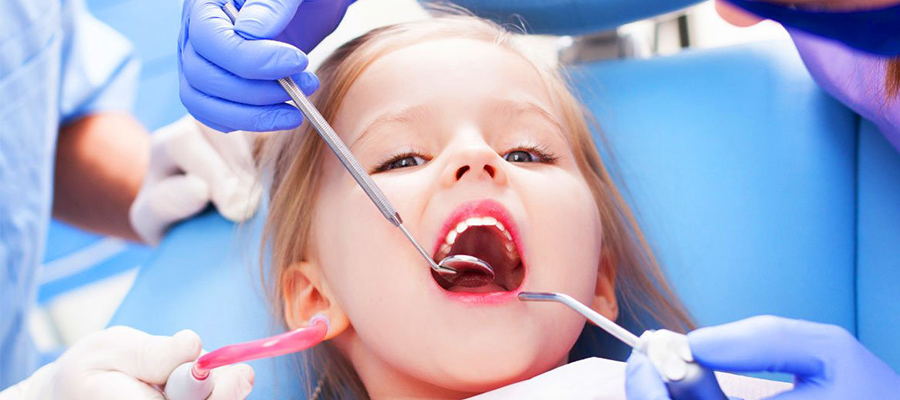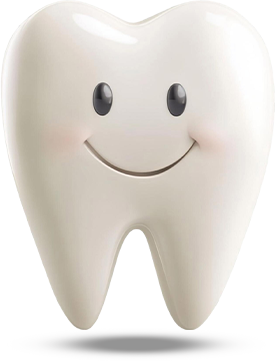
What is Pedodontics?
Pedodontics is a branch of dentistry that deals with children’s dental health. It aims to protect children’s oral and dental health from the emergence of milk teeth until the completion of permanent teeth. It offers special solutions in many areas such as caries prevention, tooth brushing training, and post-traumatic intervention.
In our clinic, we offer pedodontics services in a fun and safe environment that prioritizes children’s comfort.
Who is a Pedodontist and What Does He Do?
A pedodontist is a dentist who specializes in children’s dental health. He deals with issues such as tooth decay, primary tooth treatments, traumatic tooth injuries and preventive practices in children between the ages of 0-13. He also provides psychological support to help children overcome their fear of the dentist.
If you want to leave your child’s oral health in safe hands, we provide service with our expert pedodontists.
What age group does pedodontics serve?
Pedodontics generally covers children from infancy (age 0) to 12-13 years old. Children should be under regular pedodontist control from the first month when their milk teeth start to appear. In this way, decay is detected early and tooth development is closely monitored.
You can get information from us about having your baby’s first dental examination and take the first step safely.
The Importance of Dental Health in Children
Oral and dental health habits acquired in childhood form the basis of later life. Healthy milk teeth contribute to the healthy emergence of permanent teeth. It is also of great importance in terms of chewing, speech development and facial aesthetics.
We care about your children’s oral health and support their development with regular check-ups.
What are Pedodontic Treatment Methods?
Pedodontic treatments include fluoride application, fissure sealants, fillings, root canal treatment, post-traumatic intervention, space maintainer applications and tooth extractions. Each treatment is planned specifically for the child’s age, oral development and the condition of the teeth.
We plan the treatment process appropriately for your child and provide safe and painless applications.
Milk Teeth Treatments and Their Importance
Although milk teeth are temporary, it is very important that they are healthy. These teeth serve the purpose of chewing, speaking, aesthetics and guiding the permanent teeth. Early extraction of milk teeth can cause the permanent teeth to emerge crooked.
We try to protect milk teeth as much as possible and treat them with sensitivity when necessary.
Preventing Tooth Decay in Children
The formation of caries is related to malnutrition, inadequate oral hygiene and genetic factors. In order to prevent caries in children, regular brushing habits, sugar-free diet, water consumption and dental check-ups every 6 months are necessary. In addition, we can significantly reduce the risk of caries with fluoride and fissure sealant applications.
We protect your children’s teeth against decay with preventive applications. You can also contact us to benefit from our preventive pedodontics service.
Dental Traumas and Pedodontic Interventions
Dental trauma in children can often occur during falls, impacts or sports activities. In such cases, it is of great importance to perform pedodontic intervention without delay. Different treatment methods can be applied depending on the severity of the trauma, regardless of whether it is a milk tooth or a permanent tooth. Early intervention can prevent tooth loss and preserve jaw development.
We offer special pedodontic solutions for trauma in our clinic. You can contact us for emergencies.
When Should Orthodontic Examination Be Performed in Children?
Orthodontic evaluation should usually be done around the age of 6-7. This is a critical period when baby teeth begin to fall out and permanent teeth begin to erupt. Early examination can help detect jaw narrowness, tooth crowding, and bad habits (thumb sucking, mouth breathing, etc.).
If you want to monitor your child’s orthodontic development with a specialist, we are waiting for you at our clinic for the first examination.
Pediatric Dental Treatment with Sedation and General Anesthesia
For very young children, those with dental phobia, or individuals with special needs, treatment can be performed safely and comfortably with sedation or general anesthesia. While sedation provides a light sleep state, general anesthesia creates complete loss of consciousness. The decision on which method to use depends on the child’s age and the duration of treatment.
We offer sedation treatments to complete your child’s treatment painlessly and comfortably. Contact us for information.
How Often Should Pedodontic Visits Be Made?
Children should ideally have their dentist check-ups done every 6 months. However, if there is a tendency to decay, crowded teeth or an orthodontic evaluation is required, this period can be reduced to 3 months. Regular check-ups help detect cavities before they occur and allow for the necessary preventive measures.
We monitor your children’s dental development and protect them with regular check-ups. You can contact us to make an appointment.
Things to Know Before Getting Pedodontics
It is important to avoid words that will create fear in your child’s first pediatric dentistry appointment. Before the visit, the child should be prepared positively and given reassuring information about the procedures. It is also recommended to pay attention to oral hygiene and not to allow food to be eaten before the appointment.
We guide you to ensure that your child’s first dentist experience goes smoothly and that your child adapts to the process safely.
Pedodontics Turkey Cost 2025
As of 2025, pedodontic treatment prices vary depending on the type of procedure, duration, materials used, and additional applications such as sedation. From primary tooth filling to root canal treatment, from space maintainers to protective applications, each procedure has its own pricing.
Get information from us for the most up-to-date pedodontics prices. We offer you special solutions for healthy smiles and safely protect your children’s dental health.
FAQ
What Age Range Does Pedodontics Treat?
Pedodontics is a branch of dentistry that focuses on protecting and treating the oral and dental health of children between the ages of 0-13. From infancy to adolescence, children’s tooth development, caries formation, jaw structure and orthodontic needs are evaluated in this field.
We provide regular pedodontic follow-up to ensure your child has a healthy dental development process. We welcome you to our clinic to meet our expert pedodontics.
When Should I Take My Child for His/her First Dental Checkup?
The first dental check-up is usually recommended between 6-12 months, when the first baby tooth appears. This check-up, which is done at the latest at the age of 1, provides early information about dental health and prevents fear of the dentist. During this check-up, the risk of decay is assessed and care recommendations are provided to parents.
We offer special child-friendly applications to make the first examination a painless and enjoyable experience. You can contact us to make an appointment.
Should Baby Teeth Be Treated?
Although baby teeth are temporary, if they are removed without treatment, they can cause serious orthodontic problems in later years. Also, decayed baby teeth can cause pain, infection and chewing problems. Healthy baby teeth also guide permanent teeth to emerge in the correct position.
When baby teeth problems are treated without neglect, children’s oral health is protected in the long term. You can get support from our pedodontics specialists without delay.
Is Anesthesia Used During Pedodontic Treatment?
Depending on the nature of the procedure to be performed on children and the child’s cooperation, local anesthesia, sedation or general anesthesia may be used. Anesthesia is used especially in interventions such as tooth extraction and root canal treatment to ensure the comfort of children and to ensure a painless procedure.
We make the treatment process reassuring for your child, not scary. We offer controlled anesthesia options when necessary. You can contact us for more information.
How to Develop a Tooth Brushing Habit in Children?
The habit of brushing teeth should be acquired at the earliest possible age. Even in babies, it can be started by wiping the gums with a clean cloth. Starting from the age of 2-3, morning and evening brushing habits should be supported with fluoride children’s toothpaste and appropriately sized brushes. Activities that are turned into games, cartoons and role model parental behaviors facilitate this process.
We raise awareness among families and provide fun training to children so that oral hygiene becomes a habit. We stand by your children for healthy smiles.



